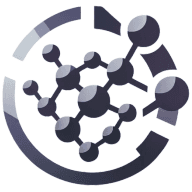6 Areas of Nanotechnology Research With Promising Impact
The evolution of nanotechnology is forging new frontiers in science and industry, promising remarkable advances across diverse fields. From transforming energy storage with nanomaterial batteries to enabling early disease detection through nanoscale sensors, the impact of these microscopic innovations is immense. Explore the groundbreaking research that is shaping the future, one nanometer at a time.
- Nanomaterial Batteries Revolutionize Energy Storage
- Nanorobots Deliver Targeted Medical Treatments
- Quantum Dots Boost Solar Energy Efficiency
- Self-Healing Nanocomposites Extend Product Lifespans
- Nanofilters Purify Water with Microscopic Precision
- Nanoscale Sensors Enable Early Disease Detection
Nanomaterial Batteries Revolutionize Energy Storage
The use of nanotechnology in energy production and storage is incredibly promising, particularly in the development of more efficient energy storage systems. One specific application that excites me is the development of nanomaterial-based batteries, such as those using graphene or carbon nanotubes. These materials have the potential to drastically improve battery life, reduce charging times, and enhance the overall energy density compared to traditional lithium-ion batteries.
For instance, graphene batteries could revolutionize electric vehicles and renewable energy storage by providing higher performance and longevity at lower costs. The ability to store more energy in smaller, lighter batteries could make renewable energy more reliable and efficient, paving the way for more widespread adoption of clean technologies. Nanotechnology holds the key to breaking through the limitations of current energy storage systems, driving the future of sustainable energy solutions.
Nanorobots Deliver Targeted Medical Treatments
Nanorobotics is revolutionizing medicine through targeted drug delivery. These tiny machines can navigate the human body with precision, delivering medications exactly where they are needed. This approach reduces side effects and increases treatment effectiveness. Nanorobots can potentially treat diseases that were once considered incurable.
They may also be used for early detection of health issues, improving patient outcomes. Researchers are working to make these nanorobots more efficient and safe for widespread use. Support ongoing research in nanorobotics to advance medical treatments.
Quantum Dots Boost Solar Energy Efficiency
Quantum dot nanoparticles are making solar energy more accessible. These tiny particles can capture and convert sunlight into electricity more efficiently than traditional solar cells. This advancement means solar panels can produce more power in less space.
It also reduces the cost of solar energy, making it more affordable for everyday use. As the technology improves, it could lead to a significant increase in clean energy adoption worldwide. Encourage the development of quantum dot technology to help combat climate change.
Self-Healing Nanocomposites Extend Product Lifespans
Self-healing nanocomposites are changing the way we think about materials. These advanced substances can repair themselves when damaged, much like living tissue. This property extends the life of products and reduces the need for replacements.
Self-healing materials could be used in everything from buildings to electronics, making them more durable and reliable. This technology has the potential to decrease waste and conserve resources on a global scale. Invest in research on self-healing nanocomposites to create a more sustainable future.
Nanofilters Purify Water with Microscopic Precision
Nanofilters are transforming water treatment processes worldwide. These microscopic filters can remove even the tiniest impurities from water, including bacteria and viruses. They work more efficiently than traditional filters, requiring less energy and fewer chemicals.
Nanofilters could make clean water accessible in areas where it was previously scarce or expensive to produce. This technology has the potential to improve public health and reduce water scarcity globally. Support the development of nanofilter technology to ensure clean water for all.
Nanoscale Sensors Enable Early Disease Detection
Nanoscale sensors are revolutionizing early disease detection. These tiny devices can detect disease markers at incredibly low concentrations, long before symptoms appear. Early detection allows for more effective treatment and better patient outcomes.
Nanoscale sensors could be used for a wide range of diseases, from cancer to infectious diseases. They have the potential to make routine health screenings more accurate and less invasive. Advocate for the integration of nanoscale sensors in healthcare systems to improve public health.


